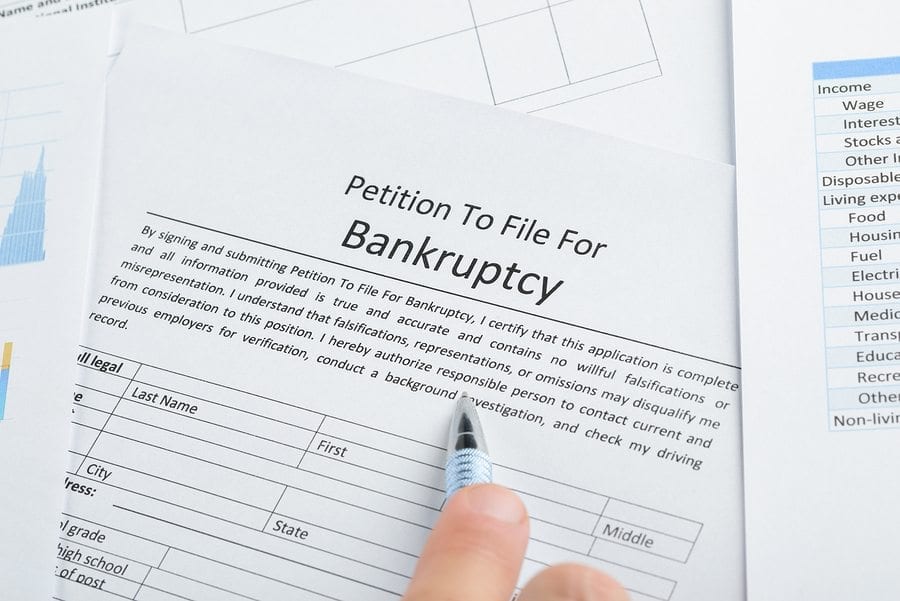If you are considering Chapter 7 bankruptcy or Chapter 13 bankruptcy, one of the factors most likely to motivate you to file is the debt relief bankruptcy can provide. Regardless of the form of bankruptcy you select, the process’s ability to eliminate debt is contingent upon a court granting what is known as a bankruptcy discharge. When a bankruptcy discharge is granted, all remaining dischargeable debt is eliminated. This provides the bankruptcy filer with a fresh financial start.
However, in certain scenarios, a court may refrain from granting this benefit. Aside from certain types of debt that are statutorily difficult to discharge, such as student loan debt, typically, a court will typically only deny a bankruptcy discharge when the taxpayer has committed wrongdoing. Alternatively, a court may also deny relief when the individual has or failed to complete or comply with certain aspects of the U.S. Bankruptcy Code.
The Philadelphia bankruptcy lawyers of Sadek Bankruptcy Law Offices can increase the likelihood that your Chapter 7 or Chapter 13 bankruptcy petition will conclude with your freedom from debt. To discuss how a Sadek Bankruptcy Law Offices lawyer can guide you through the entire process, call our law firm at 215-545-0008.
Bankruptcy Mistake #1: You Failed to Comply with Credit Counseling or Other Terms Set Forth by the U.S. Bankruptcy Code
The U.S. Bankruptcy Code sets forth the exact process by which a bankruptcy filer must proceed. Furthermore, listings of local rules and standing orders are made available by each federal bankruptcy court. For Philadelphians and other Pennsylvanians located in the Easter District, local rules, standing orders, and bankruptcy forms are available for review online.
One bankruptcy obligation introduced by the 2005 bankruptcy reform act for all filers is mandatory credit counseling. Per the U.S. Bankruptcy Code, individuals who wish to file for Chapter 7 bankruptcy or Chapter 13 bankruptcy and receive a discharge must undergo credit counseling in six months before filing for bankruptcy relief. Individuals who fail to take this course may be denied debt relief by the bankruptcy court. Likewise, bankruptcy filers are also required to take a financial management course. This course is intended to reduce the likelihood that filers take on significant new debt immediately after discharge. The failure to complete either or both of these mandatory aspects of a bankruptcy can result in a bankruptcy discharge denial.
Bankruptcy Mistake #2: You Committed Bankruptcy Fraud
Perhaps the most common reason why bankruptcy discharges are denied is because the court believes that fraud has occurred. Fraud comes in many forms but generally involves an individual who makes false statements or provides inaccurate information to induce others to take action and achieve his or her goals. Any action the debtor takes with the intent to hinder, delay, or defraud a creditor can theoretically result in a denial of a bankruptcy discharge. If the taxpayer fails to disclose certain assets, mischaracterizes debts, or forgets to mention certain transfers of property, he or she runs the risk of the court finding fraudulent intent that can result in a denial of bankruptcy relief.
Bankruptcy Mistake #3: You Can’t Explain what Happened to Assets
In some cases, an individual may find themselves in debt due to a lack of a budget. In other situations, the debtor’s finances may simply be a disorganized mess in complete disarray. It may take the work of dedicated forensic accountants to begin to shed light on what occurred. Unfortunately, in some instances, the accountants may discover that certain assets have gone missing. In any case, nothing the individual has provided can explain what happened to certain assets.
In a situation like this, the court may conclude that the behavior was not accidental or simply part of the carelessness that led to the dire financial situation. Rather, the court may conclude that you didn’t simply make a mistake or lose track of assets, but are engaging in fraudulent transfers to protect the asset. This type of scenario is more common than one might expect. It is essential to mention this fact to your lawyer so he or she can explore how to address it.
Work with an Experienced Bankruptcy Attorney in Philadelphia
The denial of a bankruptcy discharge is a serious matter. While a court may deny a discharge in whole or in part, underlying problems with the petition are more likely to result in blanket denials. In a scenario like this, all debts will remain and the bankruptcy trustee can still liquidate your non-exempt property. A scenario where you lose property and do not obtain debt relief is clearly one to be avoided.
The bankruptcy attorneys of Sadek Bankruptcy Law Offices can address all foreseeable issues that can introduce complications into a Chapter 7 or Chapter 13 bankruptcy petition. To discuss how they can help you obtain debt relief, call 215-545-0008 today.







